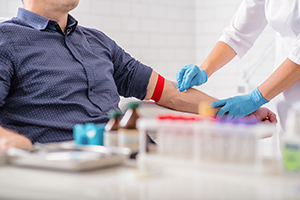What is PCI?
PCI is a common cardiovascular procedure. It is performed to widen narrowed or reduce blockages in your coronary arteries (blood vessels that supply the heart). It restores the blood flow to your heart that has been deprived of oxygen and nutrients. Subsequently, symptoms such as angina (heart-related chest pain) and breathlessness are improved.
During a PCI, a tiny balloon catheter is inserted in your blocked or narrowed coronary artery under X-ray guidance. It is then inflated to stretch your artery open. This is called angioplasty.
Usually, a short wire-mesh tube, called a stent, is then inserted into your artery. The stent is left in place permanently. It helps to keep your artery open and decrease its chance of narrowing again to allow blood to flow more freely.
Often a drug-eluting stent is used which is coated with medication to reduce the risk of your artery becoming blocked again. However, you will need to take certain medications to help reduce your risk of blood clots forming around the stent. The alternative is a bare-metal stent. Your cardiologist will discuss the benefits and risks of each type of stent with you.
PCI is sometimes used as an emergency treatment for patients who have had a heart attack. An emergency coronary angioplasty for a heart attack is known as a Primary Percutaneous Coronary Intervention (PPCI).


